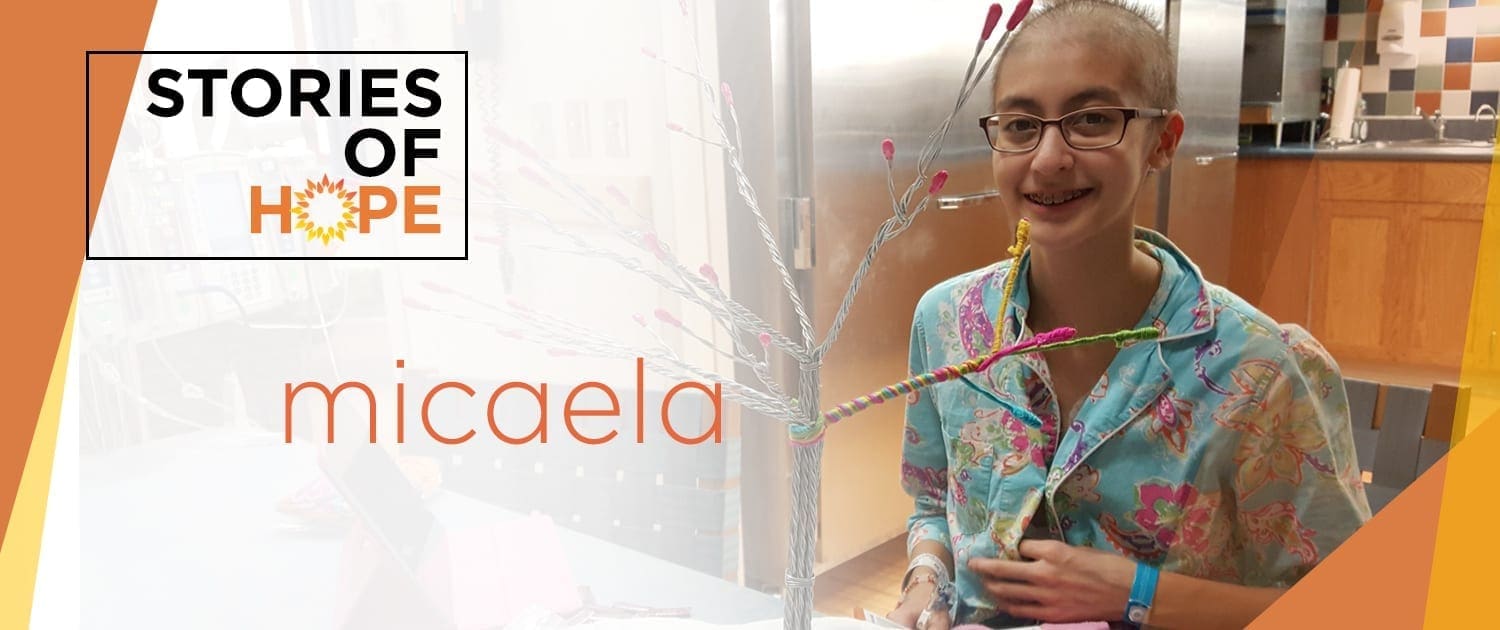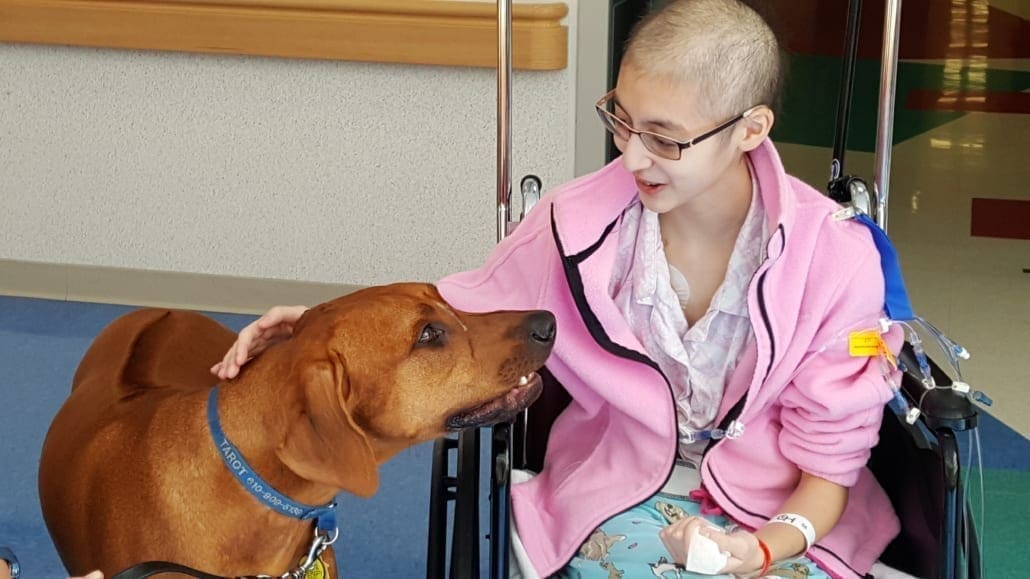Meet Micaela, she is 16-years-old and currently battling non-HPV cervical cancer.
My name’s Micaela, and I’m 16-years-old. I was diagnosed with non-HPV cervical cancer when I was 14, and I’m currently receiving immunotherapy (Nivolumab), and have had radiation therapy, chemotherapy, and surgery in the past.
I was diagnosed in January of 2017, in a local OB/GYN office. She referred me to a GYN oncologist, who took a biopsy which came back with a large amount of necrotic tissue. I was then referred to the Rutgers RWJ Cancer Center. At Rutgers, the oncologist referred me to the Children’s Hospital of Philadelphia (CHOP), and I made it there around February 2017.
I had a vaginoscopy and another biopsy, under general anesthesia. Afterward, I had a radical hysterectomy with removal of both Fallopian tubes, my cervix, lymph nodes, and my left ovary. I began chemotherapy shortly after. None of this impacted my social and academic life; I was still attending school. When they started me on chemo, I was put on both Carboplatin and Abraxane/Paclitaxel, for about 4 weeks. After the 4th week, when I was scheduled to get my 5th chemo, my creatinine levels were high, and they did an ultrasound. Another tumor had formed around my bowel, and it was larger than the original one. I was hospitalized and required radiation therapy, which I received over a course of a month, every weekday.
I stayed in the hospital for about a month, then went to a local Ronald McDonald House. After my nausea got worse, I went back to the emergency department and was hospitalized again. They did another scan and saw that there were new metastases in my lungs and liver. They started me on immunotherapy right away and had a backup plan of Gemcitabine (chemo) if the immunotherapy didn’t work. After the first week of receiving immunotherapy, my lung collapsed due to a pleural effusion. I required a thoracentesis, which is a procedure to remove fluid from the pleural cavity surrounding the lung. I stayed in the hospital for about 1 1/2 months again, totaling about 2 1/2 months. My most recent scans have shown that my tumors have decreased in size dramatically! I am currently on immunotherapy and go down to Philly every other week.
My friends have been very supportive of my situation. Sometimes, however, it has been pretty difficult. I missed the entirety of May in my eighth-grade year, along with the annual eighth-grade trip to Washington, DC.
A Little Fun Stuff About Micaela:
I love horseback riding in my free time. I also enjoy hanging out with my friends at the movies and the mall.
When I’m not doing schoolwork or hanging out with friends, I’m volunteering with my town’s first aid squad, where I am able to respond to calls and assist in patient care by taking vitals (blood pressure, oxygen levels, pulse rate), administering certain ‘medications’ (such as oxygen), and assisting in completing patient charts. I am planning on getting my state license as an Emergency Medical Technician in June of 2019.
I chose to be an ambassador so that I can share my fight with others and show them that even through the toughest times, anyone can get through it. I want to help others and tell them that they are not fighting alone.
I would like people to know that cancer is a tough fight, but it only makes you tougher.
A note from Richard (Father of Micaela)
To a New Pediatric Oncology Caregiver: As you begin to digest and process the monumental news that has just taken over your life, realize first that there are many, many professionals who are able to help you. Of course, there are the oncologists, surgeons, specialists, doctors, and nurses, but also social workers, clergy (even if you don’t consider yourself religious), child psychologists, Child Life specialists, and music and art therapists (for you as well as for your child).
Realize, too, that a palliative care team’s goal is to minimize discomfort. It’s a scary term and easy to think the worst, but by bringing them in right at the beginning, they can help minimize not only physical pain but psychological stress as well, both for you and for your child.
Everyone handles a new and serious diagnosis in a different way. Some caregivers spend hours into the night researching their child’s condition, the latest clinical trials, current research, and even speculative therapies. Others become quiet and pensive, leaving treatment entirely to the specialists. There is no right or wrong way to react, no right or wrong way to behave.
Don’t blame yourself. Yes, as parents, it is our responsibility and we do all we can to protect our children, especially from a serious, life-threatening peril. But nothing we could have done could have changed where we are now.
Know that you are not alone. Caregivers of pediatric cancer patients are a tight yet warmly welcoming community. You are family.
Click on the picture below to enlarge.
Please consider making a donation today!
Your donation helps fund better treatments specifically for kids battling cancer.





